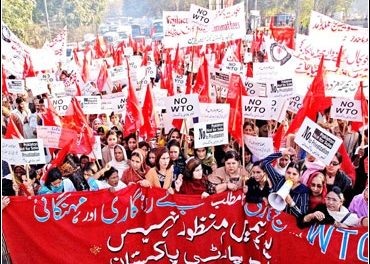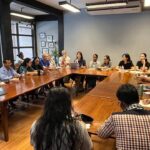Millions of people in ASEAN countries rely on affordable generic medicines to treat all kinds of diseases including HIV/AIDS, heart disease and cancer. However the future supply of these life-saving medicines is under threat from aggressive trade policies being imposed on developing countries in particular by the European Union and United States of America.
We cannot remain silent as Europe and the United States work to restrict every aspect of drug supply including the production of generic medicines, its registration, and its cross border transportation. The assault on generic medicine production is taking a number of different forms, including bilateral free trade agreements, international treaties and customs regulations. If Europe and the United States succeed, millions of people across the developing world could see their source of affordable medicines dry up, as generic companies will no longer have the space to produce or sell them.
What Europe and the United States are doing is effectively snatching the medicines out of our hands. Because generic medicines are more affordable, we have been able to get more and more people on life saving treatments. This has meant we can live again, we can work again, and bring up our children again. But if Europe and the United States have their way and shut-off this source of affordable medicines, we risk eroding what has been achieved in the last ten years in terms of bringing down the costs of treatment thru generic medicines.
The Agreement on Trade-related Aspects of Intellectual Property, or TRIPS, obliges WTO member countries to grant patents on technological products, including pharmaceuticals.
To comply with TRIPS, India changed its patent law in 2005 and started to grant patents on medicines. Granting patents on new medicines in India would curtail the ability of local generic manufacturers to produce cheaper generic versions of these medicines. This will have an impact not only in India, but also in ASEAN Member countries that rely on importing generic medicines from India in order to treat their populations. Access to medicines will therefore increasingly depend on the use of what are known as TRIPS flexibilities, legal measures enshrined in countries’ laws to promote access to more affordable medicines.
The European Union and the United States are undermining the safeguards enshrined in the TRIPS flexibilities by aggressively promoting:
1. Customs regulations that block trade in generic drugs 2. Bilateral free trade agreements that demand TRIPS+ provisions 3. International anti-counterfeiting trade agreement or ACTA
In pursuing these trade policies, the European Union and the United States are acting in violation of previous commitments. In 2001, all WTO countries, including European Union member states, signed the Doha Declaration, which states that the [TRIPS] Agreement can and should be interpreted and implemented in a manner supportive of WTO Members rights to protect public health and, in particular, to promote access to medicines for all.
This declaration allows countries to take measures to protect public health. The European Union and the United States repeatedly say they are acting in accordance with the DohaDeclaration, but at the same time pursue aggressive policies that threaten to shut down access to affordable medicines across the world.
Curtailing the production and distribution of affordable medicines would effectively leave people who desperately need these medicines without a lifeline.
We therefore call upon you today to ensure that our governments will not bow to political pressure from the European Union and the United States to trade away the safeguards enshrined in the TRIPS agreement or give into any other demands in current and future trade agreements that will threaten peoples’ access to these life saving generic medicines.
Signed
EU-ASEAN FTA Campaign Network
EU ASEAN FTA Network -Philippines
FTA Watch, Thailand
The Thai Network of People living with HIV/AIDS (TNP+)
Alternative Agricultural Network
Rural Pharmacists Foundation
Rural Doctors Foundation
Rural Doctor Society
Drug Study Group
Thai NGO Coalition on AIDS
Foundation for AIDS Rights
AIDS ACCESS Foundation
Foundation for Consumers Health and Development Foundation
Thai Holistic Health Foundation
Campaign for Alternative Industry Network (CAIN)
Health Consumers Protection Program
Drug System Monitoring and Development Program
Social Pharmacy Research Unit, Chulalongkorn University
Alliance of Progressive Labor-
Philippines
COHRE
Yogyakarta Consumer Institute








